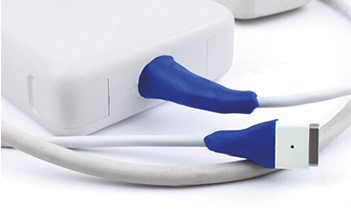 Around my household I’m known as McGyver because of my VERY improvised solutions to fixing things. The issue I have though is that often my fixes don’t even last as long as an episode of McGyver 🙂 When I first came across a product called Sugru, my mind boggled about the many different ways that this could be used.
Around my household I’m known as McGyver because of my VERY improvised solutions to fixing things. The issue I have though is that often my fixes don’t even last as long as an episode of McGyver 🙂 When I first came across a product called Sugru, my mind boggled about the many different ways that this could be used.
Sugru is an air-curing rubber that can be formed and shaped by hand, sticks to most surfaces, cures to a tough flexible silicone overnight, and is stable at -60°C to + 180°C. Strong, flexible, waterproof and durable, it can be used for a multitude of purposes to adapt, modify and repair. Its uses are really only limited by your imagination. Once cured it can be removed with a craft knife and the residue removed with fingernails and tissue paper, if required. How well does it work ? Sugru was good enough to send The Gadgeteer some of their product so we can find out for ourselves.
Sugru was developed by Jane Ní Dhulchaointigh from Kilkenny, Ireland who conceived the idea in 2003. Through a lot of hard work, perseverance and eventually business grants, Sugru was released and has grown in popularity. Sugru even appeared in position 22 in Time magazines 50 top inventions of 2010 (the iPad was number 34 ).
Sugru comes in a neat, resealable silver foil pack (neat but absolutely terrible to photograph 🙂 ). On the back of the packet there’s handy hints, usage examples, and other information. Note on the left hand side of the back, there’s a use by date. Ideally Sugru should be used within 6 months of selling date. So this packet has a sell by date of April 2012 and a use by of October 2012. If the Sugru is too old, it gets crumbly and hard to work with, and it loses its flexibility and tends to crack rather than flex when cured. Sugru suggests that you can keep it in the fridge as this should almost double the life of the product.
Inside the pack are twelve 5 gram packs of Sugru in varying colours: 3 black, 3 white, and 2 each of blue, orange, and green. Each individual pack has the use by date on it as well.
There’s a 7 steps quick start guide-book as well that gives you some starter ideas and also has a colour mixing guide to make various colours.
I was eager to just get straight into it, so I quickly found hack number one. My son wanted to shorten the Y junction for the cables on his headphones. Sugru to the rescue.
When you cut open the sealed pack you can see that Sugru looks just like plasticine or Play-Doh, and that’s exactly what it feels like, though maybe a bit softer. There’s no bad smells from it like you get with some putties or silicone-based products. After opening the packet, you have around 30 minutes to work with the Sugru. I took half the 5 gram pack and rolled it around in my fingers, formed it into a sausage, wrapped it around the cable, and smoothed it off………
And voila! One hacked and fixed headphone cable – and even in his favourite colour. 🙂
After 24 hours, the Sugru has hardened into a flexible rubber compound. Sugru is electrically non-conductive, so there’s no reason why it can’t be used on exposed wires, circuits or anything of that nature. It’s a bit hard to get a nice smooth finish on the Sugru, and you can spend a lot of time trying to achieve with lots of “soft touching” and some soapy water – but then is a nice professional looking repair still a hack? 🙂
It’s worth noting that after curing, Sugru can be cut, carved, or even sanded. Also of note is that it won’t stick to soapy water or greasy plastics like polyethylene or cling wrap film. You can use this to your advantage where you need to shape things but don’t want the Sugru to stick to something while you’re shaping it or it’s curing.
So my next job was to see how it goes fixing things. A while ago my spotting scope tripod fell over and broke the vertical winder. You can see it’s made of hard moulded plastic and there isn’t enough surface area to get a good bond with a glue. The repair had to be able to put up with the pressure and twisting involved in turning the handle. I could have used a big blob of two-part epoxy but it would have been very messy to apply especially since I can’t actually remove the mechanism to work on.
Half a packet of Sugru, a bit of moulding , 24 hours, and the winder works fine again. Okay, I can’t fold it up anymore but it’s 99% better than when it was blu-tacked to the leg so I wouldn’t lose it 🙂 The Sugru has hardened nicely and is holding the two pieces together really well. It easily puts up with the pressure on the join while turning the handle. If I really wanted the handle to fold again I could probably use a razor or knife to cut off the excess, but meh !
Since getting the pack I’ve fixed and hacked all sorts of things either by coating or connecting, made things like pot handles, knobs and hooks, sealed leaking tap joints and tried to use it in all the ways I can think of. I won’t bore you with more pictures of my projects suffice to say that Sugru has handled each task just fine every time.
A lot of the jobs I’ve done have been small ones, generally using only about half a packet. Sugru starts to cure as soon as you open the pack, and that means I’ve had to find something else to use it on. Yes I could line up a number of jobs to do at once, but that takes away the spontaneity of using Sugru. I see from the web site that people have come up with all sorts of methods of extending the life of an open packet but I’m not sure I could be bothered. It’d be nice if it came in 2.5g packs as well for those smaller jobs. Conversely I’d also like the option to purchase bigger packs for bigger projects like making large grips or handles and the like.
Base colours are limited to the 5 above and it would be nice if there was yellow and red, but I’m guessing this has something to do with the compound used to colour Sugru. They’d be two nice colours to have, and if you had prime colours, it’d be easier to mix other colours.
The limited shelf life may be an issue if you only use it occasionally; however, the way things are going, might be I’ll have to buy another pack way before the six months are up. 🙂 A way around the limited life might be to buy one pack between a few people, divvy them up, and then group reorder when you’ve used them all up.
All in all I love Sugru. I’m constantly on the lookout for things to fix or hack. I’m going to make sure I always have some handy in the house and in my gadget bag. It’s impossible to cover all the things that you can use Sugru for, so make sure you go over to Sugru’s website and see some of the ingenious ways that people have used it. If only McGyver had a packet of Sugru in his pocket every episode, the mind boggles with what he could have done 🙂
* I mentioned that Sugru was good enough to sent me a pack to review. In reality, they actually sent me two, as the first pack went missing in the postal system somewhere between the UK and Australia. Now I’ve used it I’m hoping that the missing parcel turns up and hopefully before the expiry date of the Sugru 🙂
INIU Mini Portable Charger, Small 45W PD Power Bank, 10000mAh USB C in&Out Fast Charging Pocket Size Battery Pack, Travel Essentials Powerbank for iPhone 17 16 15 14 Pro Air, Xiaomi, Samsung S24 etc
(as of February 26, 2026 07:44 GMT -06:00 - More infoProduct prices and availability are accurate as of the date/time indicated and are subject to change. Any price and availability information displayed on [relevant Amazon Site(s), as applicable] at the time of purchase will apply to the purchase of this product.)tomtoc 7L Sling Backpack Crossbody Bag for Men Women, EDC Daypack Chest Shoulder bag for 14-inch MacBook Pro M5, 13" MacBook Air/Pro, 13'' iPad Pro M5/iPad Air M3, Organized, Daily Use, Work, Travel-S
(as of February 25, 2026 19:40 GMT -06:00 - More infoProduct prices and availability are accurate as of the date/time indicated and are subject to change. Any price and availability information displayed on [relevant Amazon Site(s), as applicable] at the time of purchase will apply to the purchase of this product.)Product Information
| Price: | $18 for a Multi-colour 12-pack as reviewed; $20 for a black/white 12-pack |
| Manufacturer: | Sugru |
| Pros: |
|
| Cons: |
|

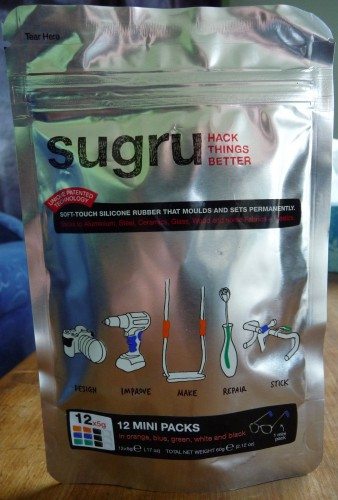
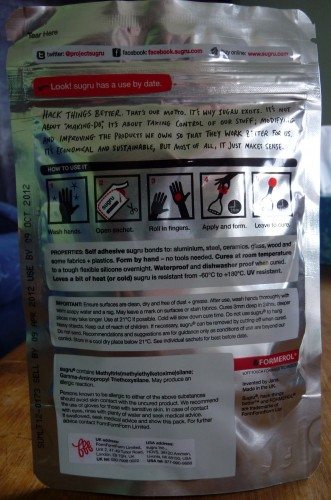
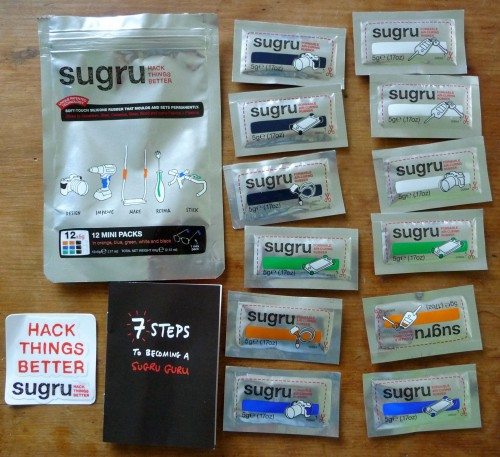
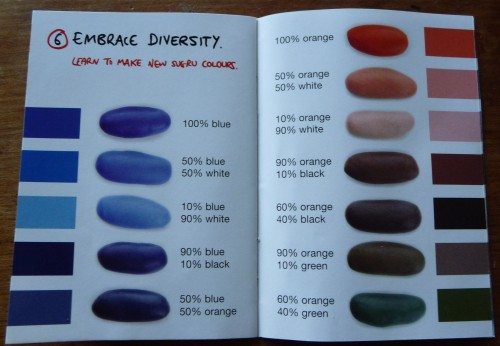
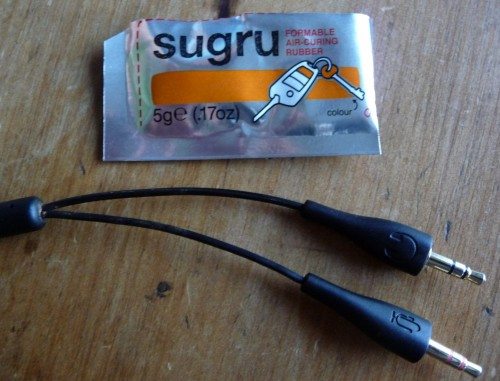
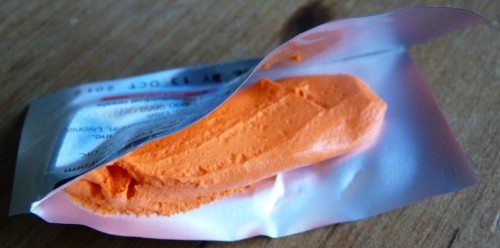
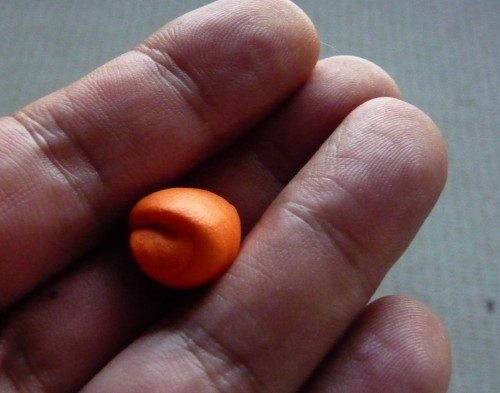
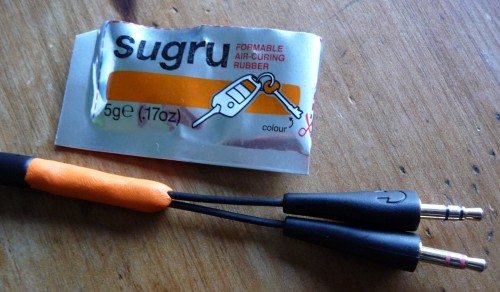
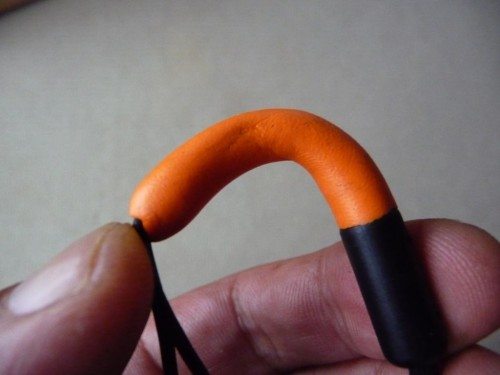
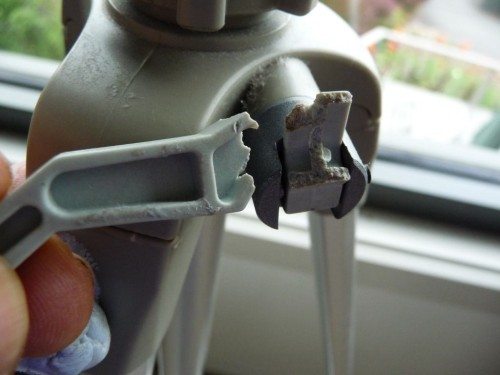
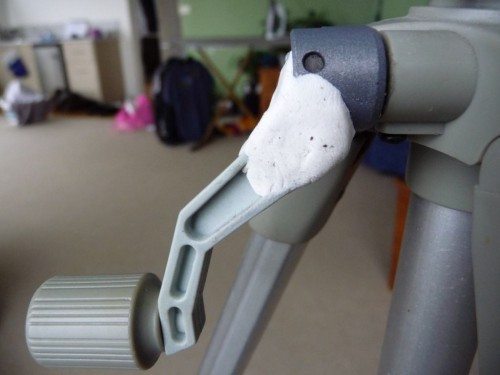


Gadgeteer Comment Policy - Please read before commenting
I like Sugru, but it’s obscenely expensive and has a relatively short shelf life. You can make your own for much less cost per ounce using 100% silicone sealant and cornstarch (Instructables is one site with details and a recipe). You can even mix in your own custom color. It’s only fair that Sugru be hackable.
You say
“It’s worth noting that after curing, Sugru can be cut, carved, or even sanded.”
But if you look at the photo of the back of the package it says not to sand. You may want to check your information.
@J – Thank you for pointing that out, I was basing that statement on postings on Sugru’s forums and Instructables which states that people have sanded it. Confused ?? Yep, me too.
Quick addendum. I just found this on the Sugru forums from one of the Sugru staff:
Is sugru sandable ? – we don’t recommend that people sand sugru once cured but it is possible.
I’ve emailed Sugru and I’ll post their reply here.
Just got the following reply from Jane the inventor of Sugru. Hopefully clears things up 🙂
Good question and sorry for the confusion! It’s absolutely fine to sand sugru. This was a precautionary warning that is no longer relevant. If you’re after a really clean edge I’d suggest slicing with a sharp blade, also do be aware that sanding sugru will result in a more porous surface than the naturally sealed surface you’ll get if you just let it cure without sanding.
Best wishes, Jane.
Sorry to hear you guys are only getting this product stateside now. I’ve been using for two years and it’s an incredible piece of kit. None I’ve ever owned has gone over the BBF date